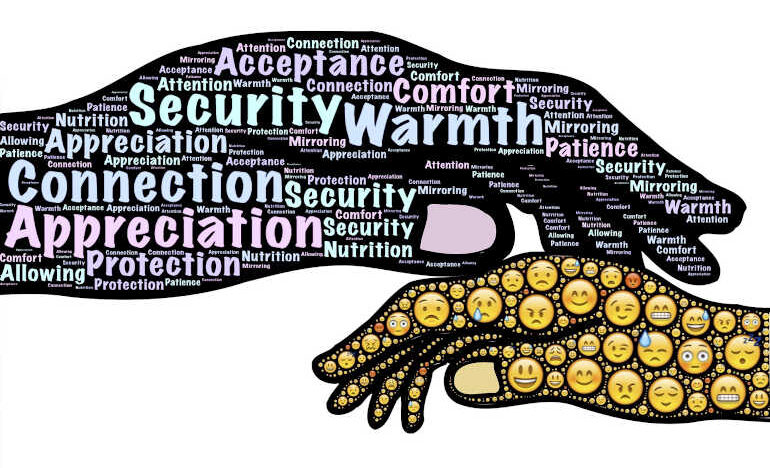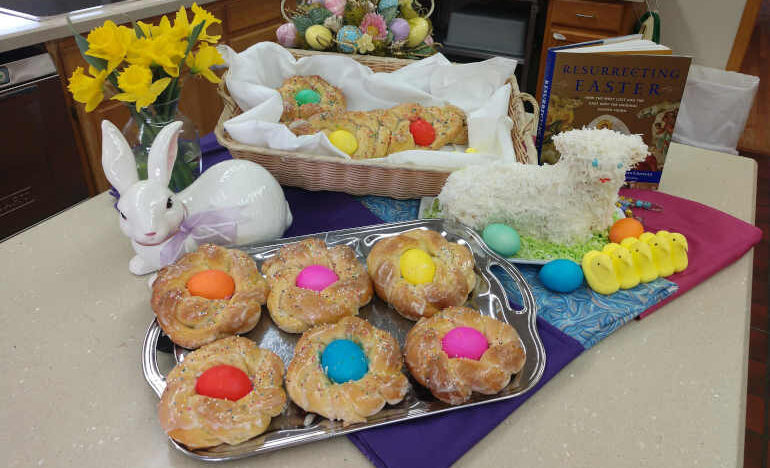Family Matters #15: Safety is a physical and emotional need

By Lucia Ferrara
Safety is a big issue for many of our youth all over the world and here in our own homes and communities. As I contemplate this issue, I ask myself several questions and challenge you to do the same.
- Who is responsible for keeping my child safe?
- What makes my child feel physically safe and emotionally safe?
According to the Search Institute, a Minnesota-based foundation that researches child and youth development, “about 51 percent of young people, ages 11-18, say they feel safe at home, at school and in their neighborhood.” Young people who feel safe are more likely to make positive contributions in their lives. The key to building safety is creating and maintaining an atmosphere that maximizes health and minimizes fear.
Who is responsible for keeping my children safe?
The immediate answer to that question is me! Parents and caregivers are responsible for ensuring their children are safe. Young people should not be trapped in fear for their safety. It is not healthy for their mental or physical growth. Kids who are vulnerable may feel unsafe, threatened, or scared. Therefore, they feel helpless. We as parents and caregivers need to make sure the surroundings in which they live are healthy environments. Exposure to violence, like peer violence, bullying, and stress are just a few examples of harmful behaviors that can harm on young people’s brain development. This can lead to the inability to succeed in school, and have a negative impact on their psyche.
All the articles in the Family Matters series are available here.
I believe communication is key to actually everything in parenting. Letting kids know that it is OK for them to talk to adults who are willing to listen to their concerns and fears is important. This lets them know that they have a trustworthy person they can talk to and feel safe around. Know when your child and youth feel unsafe because adults need to act.
How does one create a physically and emotional safe environment?
Fostering an attachment with our youth is a key responsibility for caregivers and parents. Fostering relationships with them is very important as they grow into healthy and responsible adults. It provides them with resilience, positive self-esteem and confidence. Some of the ways I have learned as a parent and caregiver to help them feel safe and secure is being able to balance a structure of love, boundaries and limits. I cannot emphasize enough that communication and connection is key.
We don’t have to be perfect, but we do have to be present. Being there for them develops that relationship of trust as I mentioned earlier.
Note: Never miss an article published on the Renewal Center website: Sign up to receive our newsletters.
Another tip for building this asset of safety is to be aware of your own behavior and attitude. Your child will know when you are feeling hesitant or fearful about something. They can pick up on your attitudes even if you don’t verbalize it. Be confident in your parenting skills but most importantly give love!
I leave you with a few things to reflect on how you and your family feel secure.
- Spend time together as a family. Spending time together builds the feeling of security. Go for a walk together. Ask them about their day, tell them about your day.
- Discuss what it means to be safe at school or in your neighborhood. Talk about how to stay safe in certain situations or circumstances. Make a safety plan together for these situations. .
- Empower them by praising them. This builds their self-worth. Find something they did that is warranted to be acknowledged. Verbal encouragement will provide them the security they need to flourish.
[Lucia Ferrara is the Director of Hospitality at Precious Blood Renewal Center and the lead organizer here of Parent Cafes. Share your thoughts with Lucia or ask her questions by using the form below or sending an email to info@pbrenewalcenter.org. Read more about the Parent Café here.]
Image by John Hain from Pixabay
We’d Like to Hear From You!
We’d like to know what you think about this article. Send us a comment using the form below. Do you have a suggestion? Is there something you want to learn more about? Send us a note.
Related

Easter Bread (Pane di Pasqua)
By Lucia Ferrara
Easter bread is a fun bread. It’s a fun bread to make with your children, with your family, with neighbors and friends. The tradition of Easter bread dates back centuries and comes from many parts of the world.

Easter Sunday, the Resurrection of the Lord
Today’s scriptures tell us how three days changed the world. How have they changed you?
Categories
Assembling God's Puzzle Coffee with Padre Cooking & Spirituality Encounters of the 4th Kind Family Matters Reflections on the Eucharsitic Prayers Spiritual Resources Taize Prayers The Contemplative Life Traveling with Pilgrims of Hope Uncategorized Videos Week of Prayer for Uhristian Unity When you need a little help
